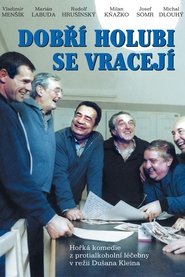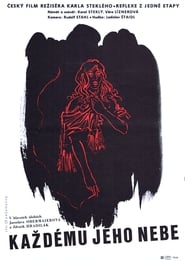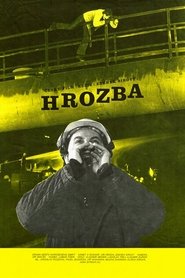detail profile emma c4 8cern c3 a1
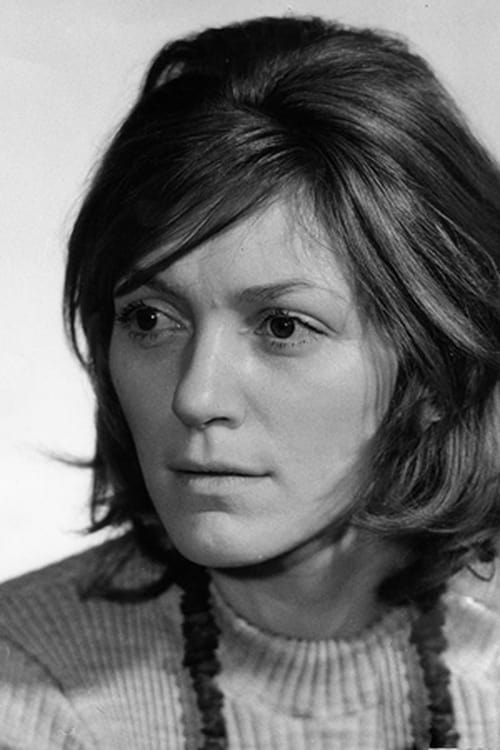
Emma Černá
Emma Cerná
atau dikenal sebagai
Riwayat Hidup
Emma Černá (23 March 1937 – 2 July 2018) was a Czech stage, film and television actress.
She is an actress, known for Adelheid (1970), Loners (2000) and Kolya (1996).
Upon her graduation from the Academy of Performing Arts, Černá worked at the Theatre on the Balustrade and the Palmovka Theatre.
She was also a guest at the Comedy Theatre in Prague and the Prague National Theatre.
She has made appearances in almost fifty film or television roles.
From Wikipedia, the free encyclopedia
Info Pribadi
Peran Yang Di Mainkan Emma Černá
 Early 18th century Cartographer Jonathan Green...
Early 18th century Cartographer Jonathan Green...Forbidden Empire 2014
Early 18th century. Cartographer Jonathan Green undertakes a scientific voyage from Europe to the East. Having passed through Transylvania and crossed the Carpathian Mountains, he finds himself in a small village lost in impassible woods. Nothing but chance and heavy fog could bring him to this cursed place. People who live here do not resemble any other people which the traveler saw before that. The villagers, having dug a deep moat to fend themselves from the rest of the world, share a naive belief that they could save themselves from evil, failing to understand that evil has made its nest in their souls and is waiting for an opportunity to gush out upon the world.
 Robert works for a travel agency...
Robert works for a travel agency...Loners 2000
Robert works for a travel agency and helps to arrange scenes from the everyday lives of "ordinary" Czech families as an attraction for Japanese tourists. He also works as a kind of matchmaker and occasionally helps to put together some of his friends. He helps to separate his friend Hanka from Peter, an announcer for an independent radio station who tries to capture "real" life by recording the moments from "reality" and playing them over the air. Vesna, came to Prague from Macedonia because it is according to her the best place for UFOs to land, but her real reason for coming is somewhat different... Hanka is followed by the crazy Ondrej, until then a respected brain surgeon, and married with two kids. Through him she meets Jacob, who uses copious amounts of weed in order to be constructive in this gloomy world. On the other hand, this destroys his short-term memory - and he forgets that he already has a girlfriend...
 Dr Lauren is staying in Prague...
Dr Lauren is staying in Prague...Prague Duet 1998
Dr. Lauren is staying in Prague for a conference and falls in love with Czech writer Jiri Kolmar.
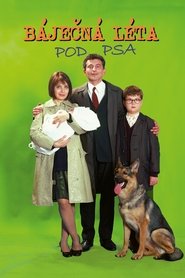 Capturing the dark humor of Czech...
Capturing the dark humor of Czech...The Wonderful Years That Sucked 1997
Capturing the dark humor of Czech author Michal Viewegh's chronicle of life after the Velvet Revolution, this black comedy chronicles three decades in the life of a small Czech family. While the original novel centered on the protagonist Kvido from his conception through his adulthood, first time director Petr Nikolaev and screenwriter Jan Novak changed the focus to his parents Milena, an extremely self-effacing lawyer who acts on stage in her spare time, and Ales, a rather aimless government worker who tends to drift wherever the wind takes him. The lives of Ales and Milena change dramatically following the Russian invasion of Prague in 1968.
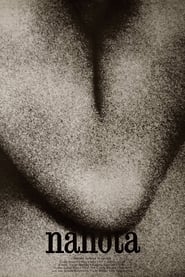 Young prisoner Jan nicknamed Roughboy Petr...
Young prisoner Jan nicknamed Roughboy Petr...Nudity 1990
Young prisoner Jan, nicknamed Roughboy (Petr Cepek), tries to commit suicide. He was imprisoned for a fight in which he injured a functionary of the National Committee and for stealing material but actually by the blame for this crime was pinned on him by the road-builders in whose group he worked. The prison doctor knows that Jan is an emotionally deprived person who never knew his parents and spent all his childhood - except one year with foster-parents - in orphanages, homes for youth and reform schools. He arranges a five-day holiday for Jan, who wants to find his mother's grave.
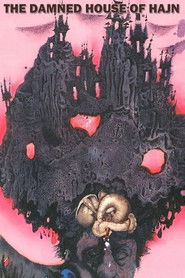 Sonya is the heiress to the...
Sonya is the heiress to the...The Damned House of Hajn 1989
Sonya is the heiress to the riches of a Czech noble family—the Hajns. Petr, a social climber marries her, ignoring some shady goings-on—in particular, an insane uncle who prowls the mansion believing himself invisible, a peccadillo the family indulges. The uncle’s stalking every corner of the house, popping out of cupboards and out from behind curtains slowly takes its toll on the young bride.
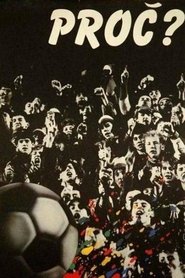 Why Czech Pro is a 1987 Czechoslovak...
Why Czech Pro is a 1987 Czechoslovak...Why? 1987
Why? (Czech: Proč?) is a 1987 Czechoslovak drama film directed by Karel Smyczek. It was screened in the Un Certain Regard section at the 1988 Cannes Film Festival. The film deals with the hooliganism in Czechoslovakia, particularly with the fans of football club Sparta from Prague, whose supporters were the pioneers of the football fan riots in Czechoslovakia, starting with hooligan actions already in the 1960s, like breaking the trains in which they travelled when they went on Sparta's away games. The film deals with one of such episodes
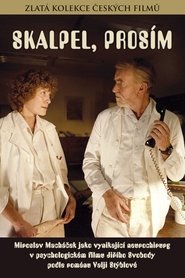 A psychological drama exploring the notion...
A psychological drama exploring the notion...Scalpel, Please 1986
A psychological drama exploring the notion of the doctor as a moral authority, who within the framework of their everyday work must face questions of life and death. The film is adapted from a novel by Valja Stýblová, in which the author draws upon her personal experiences as a former neurosurgeon. The protagonist of this drama is an ageing professor, based at a Prague neurological clinic, who is haunted by issues concerning his own principles and values, and also by the case of a young patient, Víťa, afflicted with an inoperable tumour.
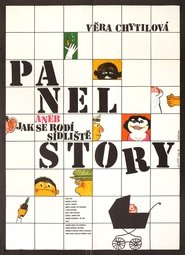 An old man is wandering round...
An old man is wandering round...Panelstory or Birth of a Community 1981
An old man is wandering round a badly signposted and as yet mostly under construction Prague housing estate looking for the high rise block into which he is supposed to be moving with his daughter's family. The old granddad from the countryside likes chatting, nothing escapes his eyes and he wants to give everyone a helping hand.
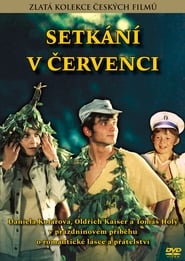 A romantic story about Jakub a...
A romantic story about Jakub a...Meeting in July 1978
A romantic story about Jakub, a student in the summer camp, and his teacher Klara.
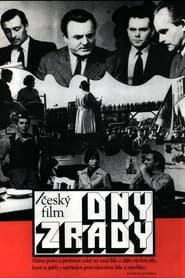 This feature film based on the...
This feature film based on the...Days of Betrayal 1973
This feature film based on the events of 1938 is a chronicle of the futile efforts of the Czechoslovak president Edvard Benes (Jirí Pleskot), politicians and ordinary citizens, to save the independence and the territorial integrity of the state from the advance of Hitler's Germany. On the 29th of March 1938 the leader of the Sudeten Germans Henlein (Werner Ehrlicher) has a meeting with Hitler (Gunnar Möller). Hitler orders him to intensify pressure on the Czechoslovak government. On the 24th of April in Carlsbad, the Sudetendeutsche Partei (Sudeten German Party) decides upon eight demands that are unacceptable to the Czechoslovak President, since they would ultimately lead to the break-up of the Republic. Benes still shows a certain willingness to negotiate, and Henlein resents this. The Germans are determined to make further negotiations impossible through incidents and violence.
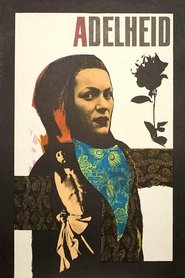 In the aftermath of World War...
In the aftermath of World War...Adelheid 1970
In the aftermath of World War II, a soldier takes charge of a manor formerly owned by a German family and falls in love with the daughter, now a maid. Their relationship forces him to confront the tension between his love and his conscience.
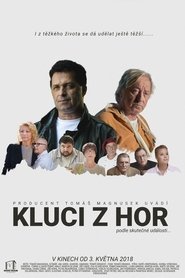
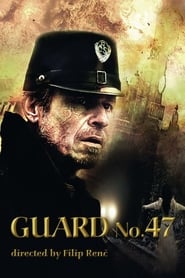 A WW I veteran still haunted...
A WW I veteran still haunted...